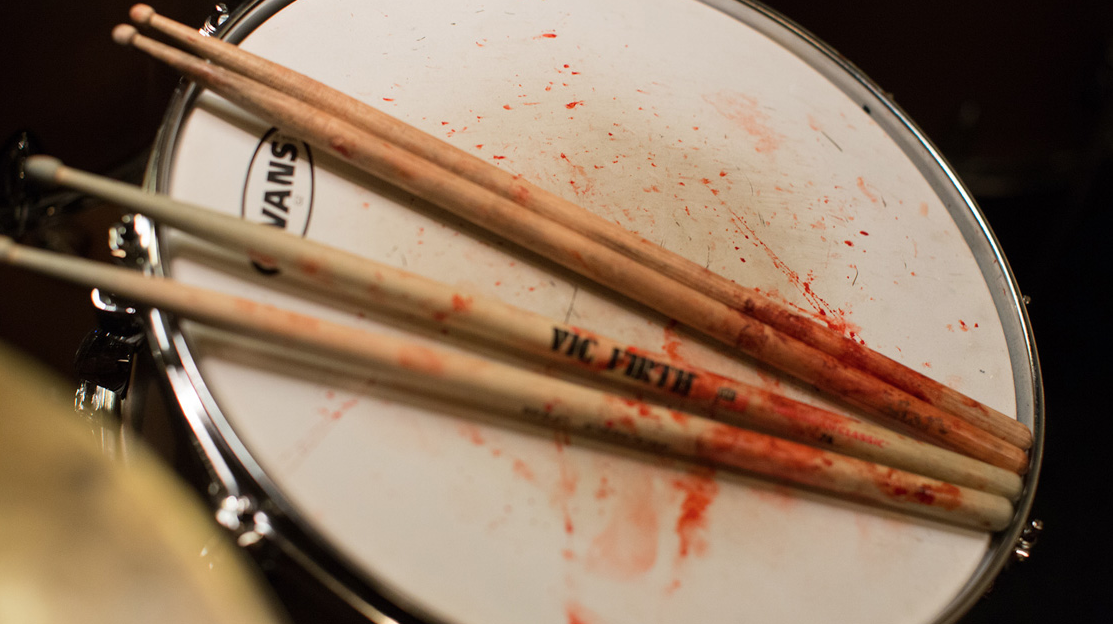Whiplash: Drumming Up Suspense
Already generating Oscar buzz, Damien Chazelle's Whiplash redefines the classroom genre with intensity, drama and raw emotion. International film critic Wael Khairy sits on the edge of his seat...

Who would’ve thought that the most intense and suspenseful film of the year would revolve around a drummer trying to perfect his craft in a classroom? Damien Chazelle’s Whiplash is not your typical inspirational teacher-student film. In fact, if anything, it completely sidesteps every cliché of the sub-genre. The result is the most unpredictable and intense film of its kind and possibly the year.
“The movie will keep you on the edge of your seat,” is a phrase critic’s often reserve for horror, action and war films, yet it never rang more true than it does for Whiplash. This is a tribute to Chazelle’s exceptional directing skills, for he managed to bring the high-octane tensions of other genres to a type of film that never really demands it. Come to think of it, Whiplash bares more resemblance to military boot camp based films such as Full Metal Jacket and Men of Honor than “classroom” films. Here the classroom is the battlefield and dropping a drumstick feels just as devastating and crucial a moment as a grenade falling between your feet.

The stressful ordeal of enrolling in a high-end music conservatory is portrayed with such realism, it’s like Chazelle used the conventions of cinema to inject the stress felt by our main character directly into the viewer’s central nervous system. How else could the shot of a left behind music folder force everyone in a packed cinema to grasp for air? It’s because Chazelle directs it in such a way, it’s like you’re the one leaving it behind. Whiplash is pure cinema, and Chazelle is the conductor manipulating our emotions with his remarkably cinematic directorial skills.
The less said about the plot of this film, the better. It is best to watch the film unravel before your eyes without knowing a clue, but I will say this. Whenever the film feels like it will go one direction, it completely turns around and twists the story somewhere else. At the front centre of this grand performance of everyone behind this film is the spectacular chemistry between J.K. Simmons and Miles Teller. Walking out of the theatre, the faces of both actors were the only ones I could remember out of the entire ensemble cast. To say they overshadow everyone else is an understatement. Simmons and Teller completely own this show.
“There are no two words in the English language more harmful than good job.” Terence Fletcher

To Simmons’ Fletcher, there is no such thing as taking things too far. He believes it is his job to push musicians beyond their limits and not only test their capabilities, but also expand their horizons in hope of guiding them to greatness. Anything less than his unorthodox teaching methods would be depriving the world of the next great artist, the next Bird.
I was curious as to whether Teller performed his own drumming and turns out he was. I also found out that during the most intense practice scenes, Chazelle wouldn’t yell “Cut!” so that Teller would keep drumming himself to exhaustion. I don’t know why, but I found this tidbit of info as inspirational and heart-warming as anything in the film itself. Chazelle was directing Teller, the actor, with the same level of passion as Fletcher’s (Simmons) desire to pull the best out of Andrew (Teller) the fictional drummer. Here’s a filmmaker who practices what he preaches, a prime example of a director believing in his characters. Chazelle doesn’t merely talk the talk with the projection of his film; he practically walked the talk while making it. I’m delighted to say that Chazelle ultimately does reach that much sought after greatness with the release of Whiplash.
- Previous Article Dr.Sisilove or How (Not) To Diffuse A Bomb
- Next Article Cross Egypt Challenge: A Two Wheeled Exploration of Egypt
Trending This Week
-
Apr 13, 2024
























